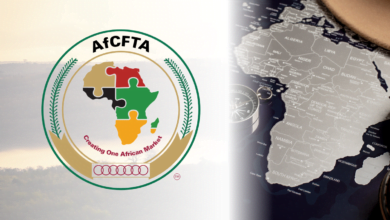Namibia’s mining sector is on an upward resurgance which is further boasted by the fact that it is the nations biggest GDP contributor. The country’s Minister of Mines Obeth Kandjoze reiterated that his ministry will “continue working with mining experts from Japan to ensure that it remains a viable industry.” Kandjoze said this during the opening of the one-day Japan Oil, Gas and Metals National Corporation (Jogmec) seminar on 26 February.
Mining in Namibia
Mining is a major contributor to Namibia’s Gross Domestic Product (GDP) as it rakes in about 30% of the sub Saharan country’s income. Namibia boasts of various minerals such as diamonds, uranium, copper , gold, lead, tin, lithium, cadmium, zinc, salt and vanadium.
The vast and prolonged exploration in Namibia for base metals, diamond, gold, natural gas, and uranium has been largely attributed to the rise in world commodity prices. Further speculations are that new mining development is on the cards that will see this sector becoming a significant sector of the Namibian economy.
Namibia and Japan pledge their commitment
Namibia and Japan have a long standing cordial mining relationship that stems back to 2010. The two countries have closely worked together in ensuring that Namibia’s mining sector is bolstered.
In 2010 governments from both countries signed a ground breaking Memorandum of Understanding (MoU) in order to build relations and foster business expansion opportunities in both countries. The MoU paved way for the co-operation and mapping of rare metals resources and related geology in Namibia, using remote sensing techniques. This co-operation has been beneficial for both parties in the sense of skills and knowledge transfer.
During the One Day Japan Oil, Gas and Metals National Corporation (Jogmec) seminar for sustainable development of Namibia’s mining sector that recently took place in Windhoek, Namibia’s Mines and Energy Minister Obeth Kandjoze reiterated that his government is fully committed to working with its Japanese counterpart to promote a sustainable development of Namibia »s natural resources.
“I should point out that Japan played a significant role in essentially keeping Rössing Uranium mine alive during the nineties by buying uranium from the company at much higher prices than any other buyer was willing to,” said Kandjoze.
The minister further added that Jogmec and his ministry will leave no stones unturned in enhancing the bilateral relations in the field of mineral resources exploration and development in Namibia.
The emergence of Jogmec as the driver of economic growth
The bilateral relations between the Namibian government and Jogmec focuses on the mapping of base metals resources geology using advanced remote sensing, and capacity building on an geographic information system and data processing.
A total of more than 100 mining experts from both countries who included 30 Japanese experts from Jogmec attended the seminar. Jogmec offers equity capital to Japanese companies as part of the funds that they need for oil and natural gas exploration, asset acquisitions, and natural gas liquefaction projects – the physical conversion of a gas into a liquid state (condensation).
Jogmec’s activities in Africa are supported by a geological remote satellite sensing centre in Botswana, which was set up in 2008 in cooperation with the country’s government. More than 300 geologists from 12 countries have taken part in joint satellite image analyses and field surveys coordinated by the centre, which Jogmec said “aims to transfer the remote sensing technique to geologists from Southern African Development Community member states” and identify prospect areas to form joint venture projects.
Japan’s commitment to mining in Africa
In 2015, the Japanese government put a smile on major investment players after it announced that it would increase financial support for Japanese companies investing in Africa’s mines and mineral sectors.





